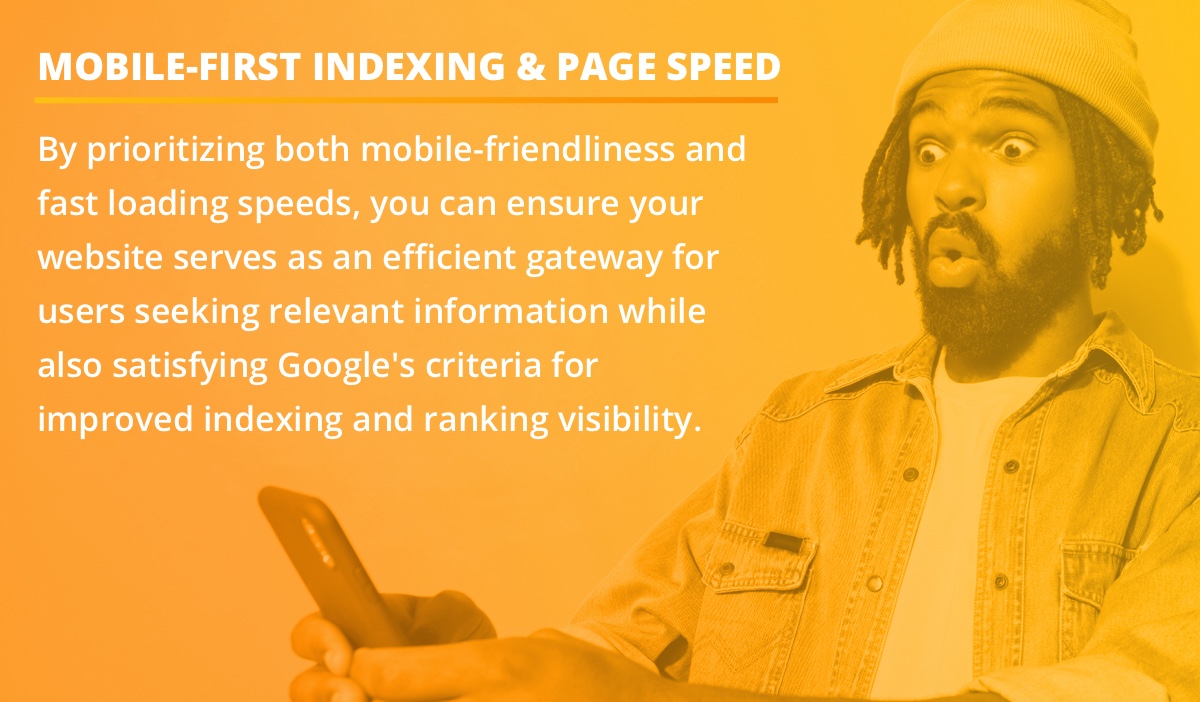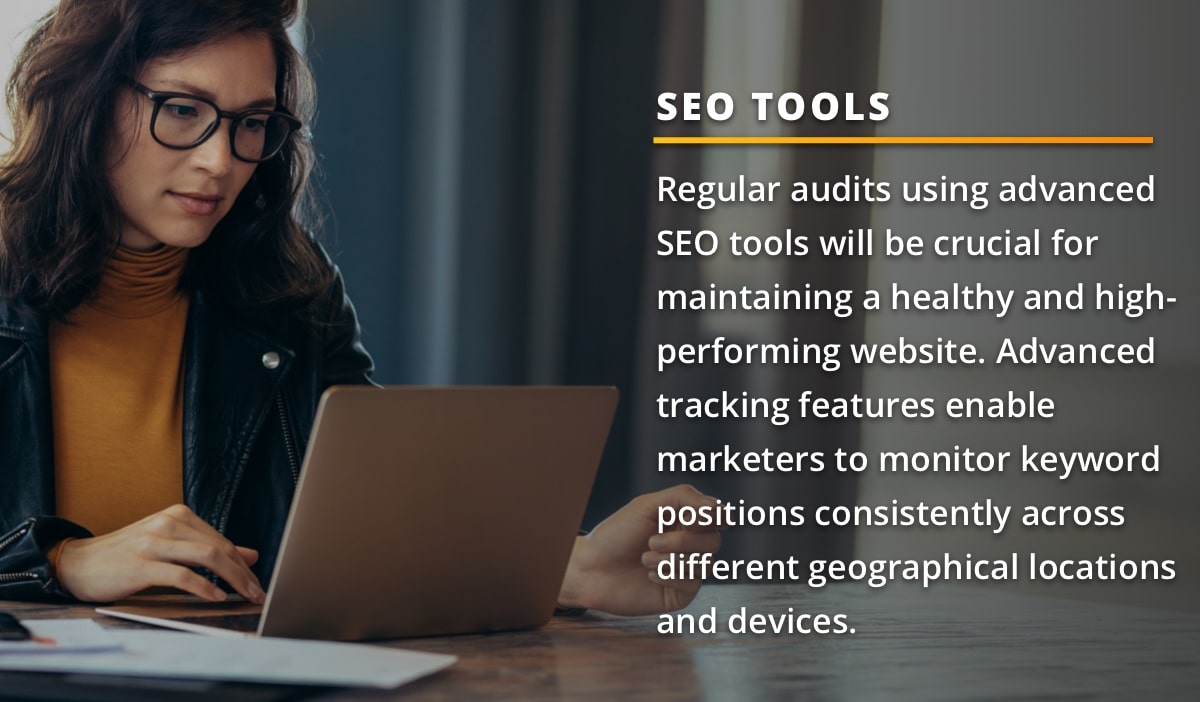
The world of digital marketing heavily relies on the implementation of effective SEO strategies. In today’s highly competitive online landscape, businesses rely on SEO to ensure their websites rank high in search engine results, to create awareness, and attract organic traffic. As content marketers and SEO specialists, it’s critical to stay ahead of the curve in this constantly evolving field.
The continued growth and changes in user behavior play a significant role in shaping the future of SEO. With advancements in technology, users have become more discerning and expectant of personalized experiences tailored to their specific needs and preferences. This shift has prompted search engines like Google to prioritize user intent over keyword matching, making it imperative for SEO practitioners to focus on creating valuable content that addresses these intents effectively.
Search engine policies have also undergone substantial transformations over time. Major players like Google continually update their algorithms to provide users with the most relevant and trustworthy results possible. This means that outdated or manipulative tactics no longer cut it when it comes to optimizing websites and content for search engines.
Marketers must continuously monitor industry trends, algorithm updates, and consumer insights while leveraging emerging technologies and tools such as artificial intelligence (AI) or natural language processing (NLP). By staying informed about these developments, marketers can tailor their strategies accordingly and maintain an edge over competitors.
The new era of SEO is about more than just keywords and backlinks. It’s about delivering a seamless, engaging online experience that meets users where they are.

Key SEO Trends
Let’s cover a few of the emerging trends that are poised to shape the future of SEO.
Semantic SEO and Topic Clusters
As search engines, particularly Google, continue to advance their understanding of user intent and context, it’s become crucial for websites to optimize their content around topics or clusters of related keywords instead of solely focusing on individual keyword phrases.
Semantic SEO marks a paradigm shift in the way content is crafted and optimized for search engines. By aligning with searcher intent through comprehensive topic coverage, websites can enhance their chances of gaining relevance in the eyes of search engines. This approach acknowledges that users often express queries using various phrases or synonyms related to a specific topic rather than relying on exact match keyword searches alone.
By grouping relevant subtopics under broader umbrella topics, website owners can create interconnected “topic clusters.” These clusters signal to search engines that they are providing comprehensive information about a particular subject matter. Furthermore, this strategic organization helps establish topical authority within a website while fostering an improved user experience by allowing visitors easy access to related information.
Schema
Schema plays a vital role in enhancing content visibility and comprehension for both users and search engine crawlers. By implementing structured data markup, website owners are not only able to provide additional context about their content but also enable rich snippets in SERPs (Search Engine Results Pages).
Rich snippets are enhanced search results that display additional information directly on the search engine page. They can include images, ratings, reviews, pricing information, and other relevant details depending on the type of content being displayed. These rich snippets not only make your website stand out among competitors but also significantly boost click-through rates.
For example, if you have an e-commerce website selling products online, implementing structured data markup specifically for e-commerce through Schema.org can allow search engines to display product prices and availability directly in the search results. This makes it easier for potential customers to quickly see important information without even having to click through to your website.
Additionally, semantic markup language helps improve content comprehension for both users and search engines by providing clear signals about what each piece of content represents or relates to. By structuring data using standard formats like Schema.org vocabulary, websites can communicate more effectively with search engines about their offerings.
Mobile-First Indexing and Page Speed
Google has made a significant shift in its indexing and ranking practices. It now gives precedence to the mobile version of websites when determining their visibility in search results. This change reflects the growing dominance of mobile devices as the primary means of accessing online content.
It has become imperative for businesses and website owners to prioritize creating a mobile-friendly website that offers a seamless user experience across different screen sizes. The responsiveness and adaptability of a site to various mobile devices are crucial factors that can influence its ranking on Google’s search engine result pages (SERPs).
Alongside being mobile-friendly, another key aspect that plays a vital role in enhancing both user experience and SEO performance is a website that loads quickly. Users expect instant access to information without any delays or frustrations caused by slow-loading websites. Studies have consistently shown that longer load times lead to higher bounce rates – meaning visitors abandon sites quickly if they don’t load within a few seconds.
Because of this, speed impacts how prominently your site appears in organic search rankings. Google doesn’t want to send visitors to slow sites that aren’t enjoyable to use. By prioritizing both mobile-friendliness and fast loading speeds, you can ensure your website serves as an efficient gateway for users seeking relevant information while also satisfying Google’s criteria for improved indexing and ranking visibility.

Artificial Intelligence
Artificial intelligence (AI) is revolutionizing the world of search engine optimization (SEO), bringing about significant changes in how websites are ranked and presented to users. This transformative technology has introduced a key factor that drives change within SEO, namely personalized search results that align with individual user behaviors and preferences.
At the forefront of this AI-driven shift is Google’s RankBrain algorithm, which has emerged as a game-changer for enhancing search query understanding and delivering tailor-made results based on user intent. By leveraging machine learning capabilities, RankBrain can decipher complex queries by analyzing patterns, context, and historical data. This allows it to make connections between seemingly unrelated terms and deliver more accurate search results.
The profound impact of AI on SEO lies in its ability to go beyond traditional keyword-based ranking factors. While keywords remain important, AI-enabled algorithms now consider various other elements such as user engagement metrics, click-through rates, time spent on page, bounce rates, and social signals when determining rankings. By doing so, they provide users with highly relevant content that precisely meets their needs.
AI can empower search engines to adapt dynamically to evolving user preferences over time. For instance, if a particular type of result tends to be favored by certain individuals or demographics during specific periods or circumstances – such as news articles during election seasons – AI algorithms can recognize these patterns and adjust accordingly. As a result, users receive more personalized recommendations aligned with their interests while discovering new content tailored specifically for them.
Voice Search
As the prevalence of voice assistants continues to grow, it has become increasingly crucial for businesses and content creators to optimize their content for voice search. Voice search queries are transforming the way people interact with technology and access information, making it essential for websites and online platforms to adapt accordingly.
One key aspect of optimizing content for voice search involves focusing on long-tail keywords. Unlike traditional keyword optimization, which often revolves around shorter phrases or single words, long-tail keywords are more specific queries that mimic natural language patterns used in spoken searches. By incorporating these longer and more conversational phrases into your content strategy, you increase the chances of your website being discovered by users utilizing voice search.
Adopting a more conversational tone in your content is another vital component of successfully catering to voice search algorithms. As opposed to typed searches entered through keyboards or screens, voice-based queries tend to be more casual and resemble human conversation. Crafting your content in a manner that reflects this conversational style can help enhance its visibility among potential users conducting searches via voice assistants.
E-A-T (Expertise, Authority, Trustworthiness) and YMYL (Your Money Your Life)
Google’s quality guidelines have become a crucial factor in determining the success of websites. One key aspect emphasized by these guidelines is E-A-T – expertise, authority, and trustworthiness. Websites that can showcase a deep understanding and proficiency in their respective niches are more likely to rank higher in search engine results.
Establishing expertise entails demonstrating comprehensive knowledge and experience within a given subject area. Whether it be through well-researched content, expert contributors, or an extensive portfolio of relevant work, establishing oneself as a credible source is vital for gaining visibility online.
Authority plays a significant role in determining website rankings. This relates not only to the quantity but also the quality of backlinks pointing towards a particular site. Backlinks from reputable sources act as endorsements and contribute to building credibility and authority within the industry.
Trustworthiness serves as another critical criterion for Google when evaluating websites’ ranking potential. Pages that possess the ability to impact individuals’ future happiness, health, financial stability, or safety fall into what is known as YMYL (Your Money or Your Life) category. These pages require an even higher level of trustworthiness due to their potential consequences on users’ lives.
For instance, medical websites providing health advice should be backed by trusted medical professionals or organizations recognized for their expertise in order to instill confidence among users seeking reliable information about their well-being. Similarly, financial institutions offering advice on investments must demonstrate transparency and adhere to regulations governing such services
Video SEO
With the increasing popularity of video-sharing platforms like YouTube and the soaring demand for visual information, businesses and individuals alike are recognizing the immense potential that optimized videos hold for search engine optimization (SEO). To effectively leverage this powerful medium, it is essential to implement various strategies aimed at enhancing your videos’ visibility and engagement.
Optimizing text for YouTube videos is crucial as a first step. It improves searchability. When your video’s title, description, and tags contain relevant keywords, it’s easier for users to find your content. Secondly, optimized text enhances viewership and engagement. It attracts viewers and encourages them to watch your video. The YouTube algorithm uses text data to rank videos, so optimized text can help your content appear in recommended video feeds.
Crafting engaging thumbnails and titles plays a pivotal role in attracting viewer attention amidst a sea of competing content. Thumbnails act as visual representations that entice potential viewers to click on your video while titles succinctly convey their essence. By carefully selecting compelling images or moments from your video to feature as thumbnails and incorporating relevant keywords into concise yet captivating titles, you significantly increase the likelihood of enticing clicks and boosting organic traffic.
Equally important is including transcriptions within your video content to enhance its accessibility and improve SEO performance. Transcripts provide written versions of spoken dialogue or narration featured in videos, making them valuable resources for both hearing-impaired individuals seeking inclusive access to multimedia content and search engines aiming to understand context accurately.
SEO Tools
As businesses strive to stay ahead in highly competitive online environments, SEO tools will play an increasingly pivotal role in their success. These indispensable tools are already revolutionizing how websites optimize their content and enhance their visibility across search engines.
One of the key areas where SEO tools will become even more essential is in gathering valuable insights about website performance. With precise and comprehensive data at their fingertips, marketers can gain a deeper understanding of how users interact with their site, identify potential bottlenecks or issues hindering user experience, and make informed decisions based on actionable intelligence.
Performing regular audits using advanced SEO tools will be crucial for maintaining a healthy and high-performing website. By conducting thorough examinations of various aspects like site structure, backlinks profile, page loading speed, mobile-friendliness, and other critical factors that impact rankings on search engine result pages (SERPs), businesses can proactively address any weaknesses or shortcomings that may hinder organic traffic growth.

Tracking rankings accurately has always been an integral part of successful SEO strategies; however, it will take center stage in the future as competition intensifies. Advanced tracking features offered by leading SEO tools such as SEMrush, Ahrefs, Moz Pro, and others enable marketers to monitor keyword positions consistently across different geographical locations and devices. This real-time insight empowers them to adapt strategies swiftly based on emerging trends or shifts in user behavior.
SEO is a dynamic and continually evolving field. The trends we’ve discussed are shaping the future of SEO, and as content marketers and SEO specialists you must continue to evolve your strategies, keep your focus on creating valuable content and amazing experiences for users, and never stop learning. Learn more about SEO best practices here.dxcef
Performing regular audits using advanced SEO tools will be crucial for maintaining a healthy and high-performing website. By conducting thorough examinations of various aspects like site structure, backlinks profile, page loading speed, mobile-friendliness, and other critical factors that impact rankings on search engine result pages (SERPs), businesses can proactively address any weaknesses or shortcomings that may hinder organic traffic growth.
Tracking rankings accurately has always been an integral part of successful SEO strategies; however, it will take center stage in the future as competition intensifies. Advanced tracking features offered by leading SEO tools such as SEMrush, Ahrefs, Moz Pro, and others enable marketers to monitor keyword positions consistently across different geographical locations and devices. This real-time insight empowers them to adapt strategies swiftly based on emerging trends or shifts in user behavior.
SEO is a dynamic and continually evolving field. The trends we’ve discussed are shaping the future of SEO, and as content marketers and SEO specialists you must continue to evolve your strategies, keep your focus on creating valuable content and amazing experiences for users, and never stop learning. Learn more about SEO best practices here.
Most Popular Articles

Seeing Favicons in Your Google Search Results? Here’s Why…
Have you noticed anything different in your Google Search results lately? Google added tiny favicon icons to its organic search results in January. It was…

Business Growth and Digital Marketing News & Tips 11-17-24
Are you encouraging and rewarding innovation? Lee Cockerell is the former Executive Vice President of Operations at Walt Disney World. A lover of traditional red…

Business Growth and Digital Marketing News & Tips 11-27-24
A culture of gratitude "Feeling gratitude and not expressing it is like wrapping a present and not giving it." – William Arthur Ward Beyond being…








